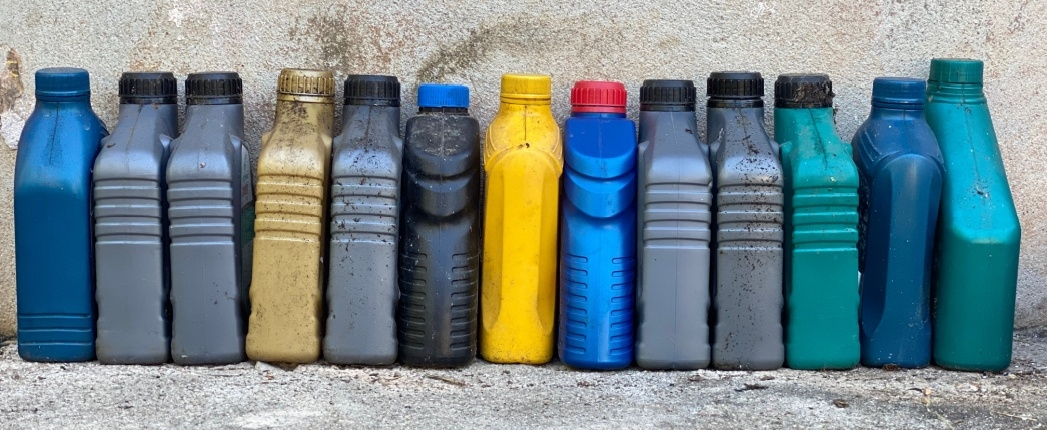
A ground-up mixture of drained plastic motor oil canisters can be used as a construction additive in road pavement materials typically made of bitumen and concrete, to enhance the pavement mixture’s resilience to physical strain and temperature variations, according to research conducted by Perm Polytechnic University.
The research also aims to produce more environmentally friendly road pavement materials by recycling used motor oil canisters instead of dumping them in landfills or incinerating them. Technicians at Perm University claim that while low-density polyethylene has been used before as a component in bitumen concrete mixture, studies on grinded plastic containers with motor oil residue inside them have not yet been carried out.
Due to its composition and varied resilience to temperatures and waterproofness, road surfaces can deteriorate rapidly, showing different cracks and surface damage. Scientists at this Russian university have proposed a solution for improving bitumen concrete road construction materials. In their experiments, they used drained motor oil canisters in the form of a ground-up mixture as an additive in the road pavement mix, according to a recent news release.
“Low-quality recycling of petroleum products negatively impacts the environment, especially concerning the polyethylene canisters used for storing and transporting automotive engine oils,” Perm University said in a February 20 news release.
According to some estimates, about 450 million motor oil containers of different sizes are produced in Russia annually.
“If dumped in landfills, they can contaminate groundwater,” the institution said. “If incinerated, they may generate toxic emissions.”
In their research, scientists used drained 1-, 4-, 10-, and 30-liter plastic containers with residual oil inside them. They ground them to achieve a mixture of plastic particles and oil, with residual content comprised of 8% of the cumulative capacity of each container. This mixture is then added to the mix of sand, tarmac and bitumen at different concentration rates.
“The experiments demonstrated that the optimal concentration of the crumbled packaging was between 4% and 18%, while that of bitumen was between 5.5% and 5.8%,” the researchers noted. “The shape of the particles and their rough surface served as a reinforcing element, reducing the consumption of cementing components and prolonging the service life of the bitumen concrete.”
As a result of the tests, technicians found that motor oil accelerates the process of homogeneous distribution of the ground polyethylene waste, when blended into the road construction mixture.
“The shape of the particles of the container used and their rough surface allow them to act as a reinforcing element,” Kirill Tyuryukhanov, senior lecturer at the university’s Department for Motor Highways and Bridges, said. He added that the tests showed reduced consumption of the binder components while increasing the service life of the bitumen concrete.
Also, the new mixture was tested for toxicity.
“We studied the toxic properties of our mixture using green unicellular algae and entomostracans,” Tyuryukhanov said. “We tested the obtained specimens, according to the state standards of [Russian] GOST requirements and proved that the mix of bitumen concrete blended with ground containers of engine oil is not toxic and meets all requirements.”
The scientists at Perm University claim that this mixture can be used as a reinforcing element in the production of bitumen cement mixtures. This can enhance the pavement resilience to strains caused by heavy-duty freight trucks and temperature variations, thereby ensuring that road pavements last much longer without cracks or deformations.
“This invention can be freely used in the construction of roads, bridges and airports, reducing the impact on the environment, cutting the price of bitumen concrete products, and offering a wider range of road construction materials,” the university stated, adding that it is already in talks with companies for the practical application of this invention.